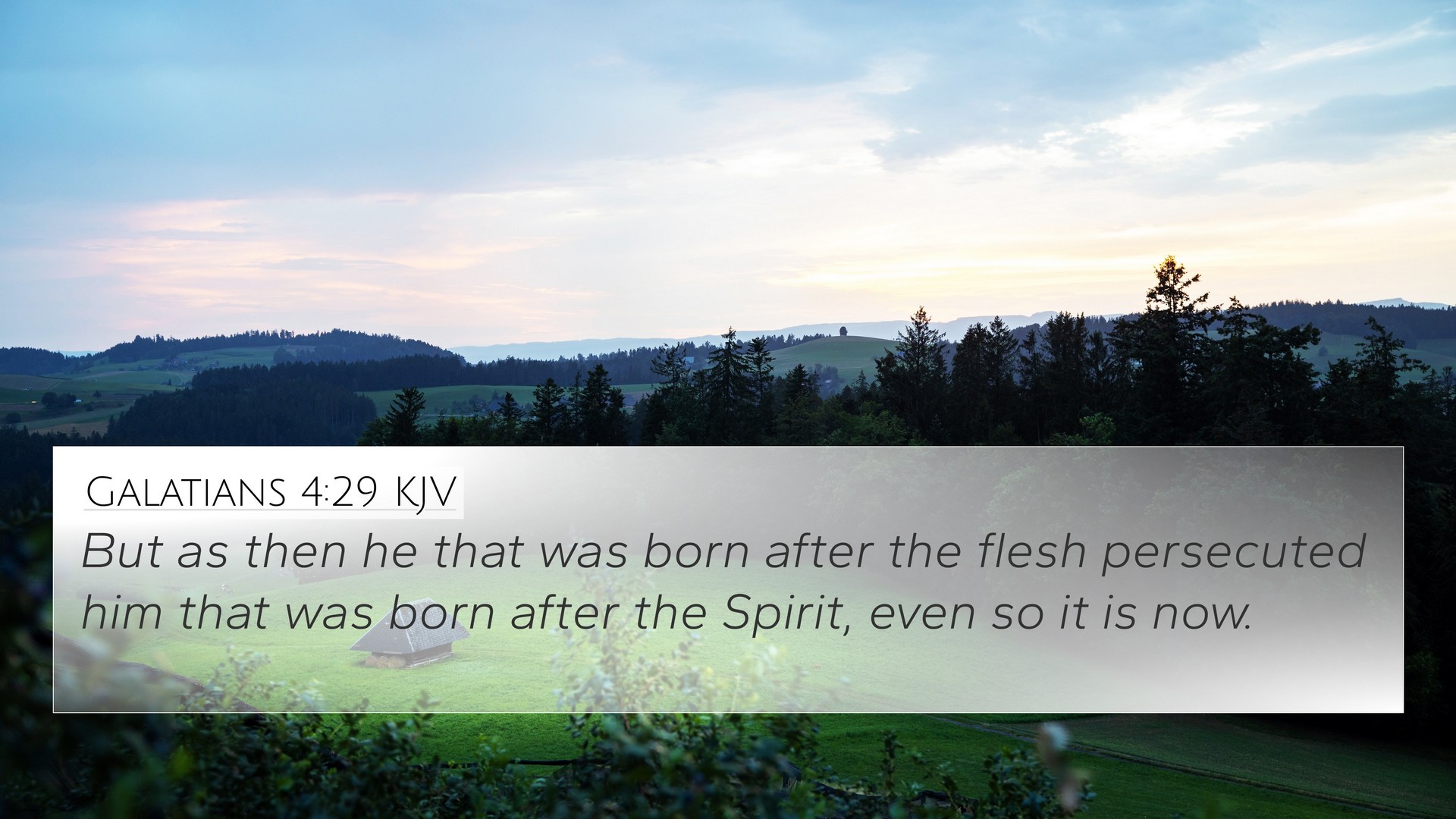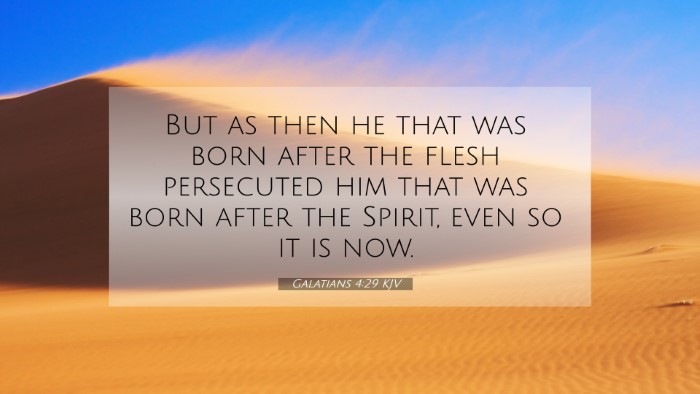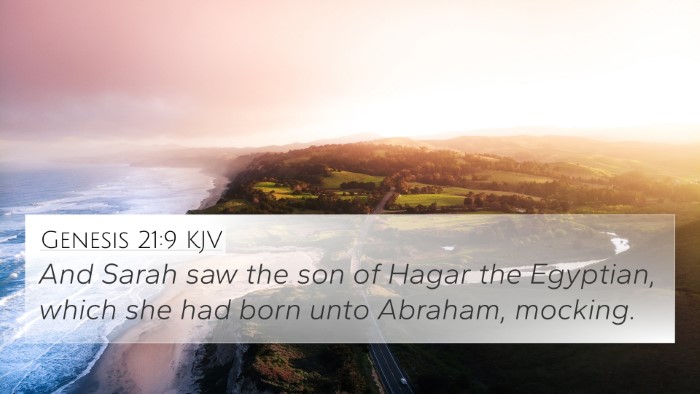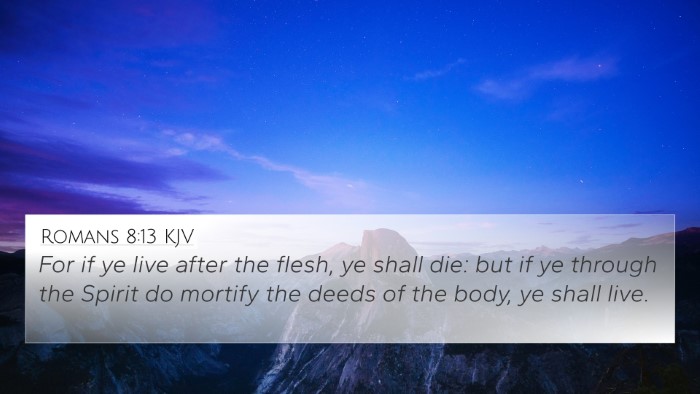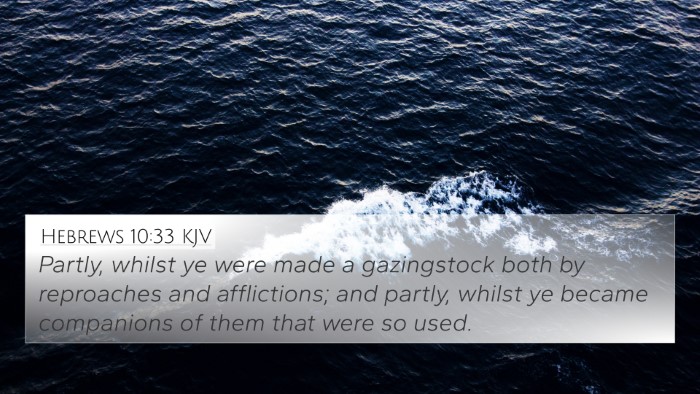Understanding Galatians 4:29
Galatians 4:29 states: "But as then he that was born after the flesh persecuted him that was born after the Spirit, even so it is now." This verse draws a profound connection between the physical and spiritual realms within the context of the Christian faith. In this summary, we will explore insights from various public domain commentaries, including those by Matthew Henry, Albert Barnes, and Adam Clarke, to provide a comprehensive understanding of this scripture.
Contextual Background
To fully grasp Galatians 4:29, it is crucial to consider its context within Paul's epistle to the Galatians. The Apostle Paul contrasts two covenants symbolized by Abraham's sons: Isaac, born of the promise, and Ishmael, born of the flesh. This dichotomy illustrates the struggle between the law and grace, faith and works.
Verse Analysis
The phrase "born after the flesh" refers to Ishmael, who represents those who rely on human effort and the legalistic aspects of the law. In contrast, "born after the Spirit" refers to Isaac, symbolizing those who are born again through faith and the power of the Holy Spirit. This interpretation is supported by:
- Matthew Henry: He emphasizes that the persecution faced by believers is a recurring theme in Christian history, asserting that the flesh will always oppose the Spirit.
- Albert Barnes: He elaborates on the notion that just as Ishmael persecuted Isaac, the natural man often persecutes the spiritual man, indicating a symbolic representation of the ongoing struggle between faith and works.
- Adam Clarke: Clarke suggests that the children of the promise (Isaac) are often discriminated against and oppressed by those who adhere strictly to the law, highlighting the tension within the early church.
Thematic Connections
This verse establishes significant thematic connections within the Bible. Below are the key themes along with related verses:
- Persecution of Believers:
- Matthew 5:10 - "Blessed are those who are persecuted for righteousness' sake, for theirs is the kingdom of heaven."
- 2 Timothy 3:12 - "Indeed, all who desire to live a godly life in Christ Jesus will be persecuted."
- Spiritual vs. Carnal:
- Romans 8:5 - "For those who live according to the flesh set their minds on the things of the flesh, but those who live according to the Spirit set their minds on the things of the Spirit."
- Galatians 5:17 - "For the desires of the flesh are against the Spirit, and the desires of the Spirit are against the flesh."
- The Children of God:
- John 1:12 - "But to all who did receive him, who believed in his name, he gave the right to become children of God."
- Romans 9:8 - "It is not the children of the flesh who are the children of God, but the children of the promise are counted as offspring."
Cross-Referencing Insights
Cross-referencing this verse enriches our understanding of the biblical narrative and reveals interconnections between various passages. The following presents notable cross-references:
- Galatians 4:23: "But he who was of the bondwoman was born according to the flesh, and he of the freewoman through promise." This reinforces the division between legalism and spirituality.
- Hebrews 11:17-19: This passage illustrates Abraham's faith in God's promise, relating back to Isaac's birth as a miraculous event.
- John 3:6: "That which is born of the flesh is flesh, and that which is born of the Spirit is spirit." This succinctly sums up the spiritual truths presented in Galatians.
- 1 Peter 4:4: "With respect to this they are surprised when you do not join them in the same flood of debauchery, and they malign you." This aligns with the idea of persecution due to spiritual convictions.
- Genesis 21:9-10: The account of Sarah observing Ishmael's ridicule of Isaac draws a direct parallel to the prevailing theme in Galatians.
- Romans 8:16-17: This highlights the inheritance of those born of the Spirit, affirming believers' identity as children of God.
- Revelation 12:13: The dragon’s persecution of the woman who gave birth to the male child symbolizes ongoing persecution, reflecting the historical context of Galatians.
Insights from Biblical Commentary
The insights derived from Matthew Henry, Albert Barnes, and Adam Clarke provide depth to our understanding of Galatians 4:29. Each commentator emphasizes the divine opposition faced by the faithful and the continuous struggle against the flesh. Their analyses guide readers in identifying connections and themes that resonate throughout the Bible, fostering a comprehensive study experience.
Tools for Bible Cross-Referencing
Utilizing tools for Bible cross-referencing can significantly enhance your study of scripture. Here are some recommended tools and methods:
- Bible Concordance: A valuable resource for finding specific verses and their occurrences throughout the text.
- Cross-Reference Bible Study: Engage with tools designed to map out relationships between verses.
- Bible Cross-Reference Guide: These guides organize scriptures thematically and contextually for easier navigation.
- Comprehensive Bible Cross-Reference Materials: Many versions of the Bible come annotated with cross-referenced verses that provide deeper insights during study.
Conclusion
Galatians 4:29 serves as a profound reminder of the ongoing conflict between the flesh and the Spirit within the Christian journey. It underscores the reality of persecution that believers face while encouraging faith in God’s promises. By engaging in cross-referencing biblical texts, one can uncover the intricate web of connections throughout scripture that enrich comprehension and applicability in daily life.
